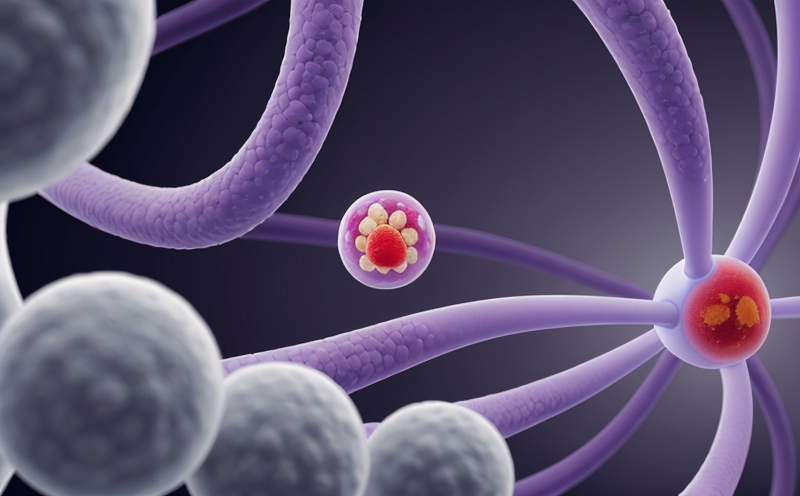Angiogenesis Marker CD31 Testing in Rodent Tumor Tissue
The Angiogenesis Marker CD31 testing is a critical tool within the realm of cancer biomarker analysis, particularly within the sector of clinical and healthcare testing. This test focuses on identifying and quantifying the expression of CD31, an endothelial cell marker that plays a crucial role in angiogenesis—the process by which new blood vessels form from pre-existing ones. Angiogenesis is vital for tumor growth and metastasis, making it a key target for cancer research and treatment.
The significance of this test lies in its ability to provide insights into the microvascularization status of tumors, offering valuable information for assessing the aggressiveness of cancers. By measuring CD31 expression, researchers can gain deeper understanding into tumor progression mechanisms, which is essential for developing more effective therapeutic strategies. This testing method supports the advancement of personalized medicine by enabling tailored treatments based on individual patient profiles.
The process involves meticulous preparation and analysis of rodent tumor tissue samples. Specimens are typically obtained through surgical biopsy or other established methods in compliance with ethical guidelines. Following collection, these tissues undergo rigorous pre-processing steps including fixation to preserve cellular architecture and subsequent embedding for slicing into thin sections suitable for microscopic examination.
For the actual testing procedure, immunohistochemistry (IHC) techniques are commonly employed due to their sensitivity and specificity when detecting CD31 expression within tumor vasculature. Antibodies specifically designed against CD31 are used in this process to identify endothelial cells lining blood vessels. These antibodies bind to target antigens on the surface of these cells, allowing for visualization under a microscope.
The results from such tests provide quantitative data regarding vessel density and morphology within the tumor microenvironment. Such information can then be correlated with various clinical outcomes or response patterns observed during treatment trials involving different therapies aimed at inhibiting angiogenesis (e.g., anti-VEGF drugs).
This service not only contributes significantly to basic scientific knowledge but also holds potential applications in translational research and drug development. Understanding how CD31 expression varies across diverse types of tumors could lead to more precise diagnostic tools or novel therapeutic approaches targeting specific subpopulations of patients who might benefit most from certain interventions.
- Improved Precision: Enhanced accuracy in predicting tumor behavior through detailed analysis of vascularization patterns.
- Promoted Personalization: Facilitates development of customized treatment plans based on individual patient characteristics.
- Better Outcomes: Assists researchers in identifying biomarkers that can guide selection of effective therapies early in clinical studies.





